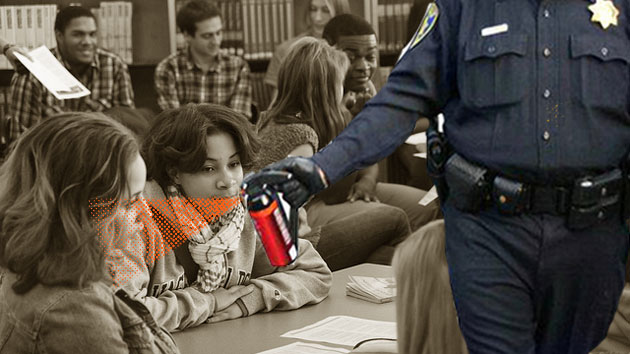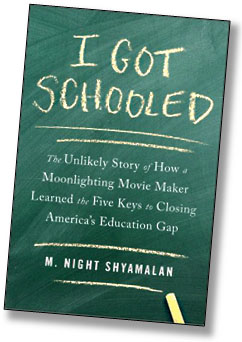The term “black lives matter” has become the battle cry for Americans outraged by the recent deaths of Mike Brown, Eric Garner, Tamir Rice and other unarmed black men at the hands of police. Indeed, the folks at the Schott Foundation for Public Education aim to help make those lives matter before they come to a premature end. Black Lives Matter, its fifth annual report on the state of black youth in the public schools, looks at suspension and graduation rates and points to some alarming trends.
For example, according to the report, 15 percent of black males nationwide have been suspended from school, versus only 5 percent of white boys. Missouri, Michigan, and Florida have some of the highest suspension rates for black boys: greater than 20 percent. These findings parallel a March 2013 study by the Discipline Disparities Research-to-Practice Collaborative, which found that black students and students with disabilities are suspended at “hugely disproportionate rates.”
All of this information is presented in the context of the school-to-prison pipeline; data has shown suspensions increase the likelihood of students dropping out, and many end up in the criminal justice system. In 2013, researchers at Johns Hopkins University found that about 75 percent of Florida ninth graders who were never suspended as freshman graduated from high school. Those suspended once had a 52 percent graduation rate. For those suspended multiple times, the rate was just 38 percent.
Nationally, the Schott report notes, only 59 percent of black males graduate from high school, versus 80 percent of white males. The worst rates were found in Washington, DC, and in Nevada—both had graduation rates of less than 50 percent for black males.
That’s a bleak picture. But the report also aims to highlight the achievements of young black men who graduate from high school, such as the more than two million with four-year college degrees and those who have left significant marks in the world of business, finance, science, and the arts.
The high suspension and low graduation rates received national attention last January: President Barack Obama rolled out his first “school discipline guidelines,” which hold schools legally responsible for the disparate impact of their disciplinary actions on different races. In February 2014 the president announced his “My Brother’s Keeper” initiative. With more than $200 million in foundation support, it aims to help black youths finish school and stay out of the criminal justice system.
The Schott report comes one week after the publication of Black Girls Matter: Pushed Out, Overpoliced and Underprotected, a new report from Columbia Law School that highlights an even greater disparity in the rates of punishment for black girls: Crunching data from the Department of Education, the authors found that black girls are suspended six times more often than white girls, whereas black boys were suspended three times as often as white boys.
“We must challenge the assumption,” says Columbia Law School professor Kimberlé Crenshaw, the report’s lead author, “that the lives of girls and women—who are often left out of the national conversation—are not also at risk.”














